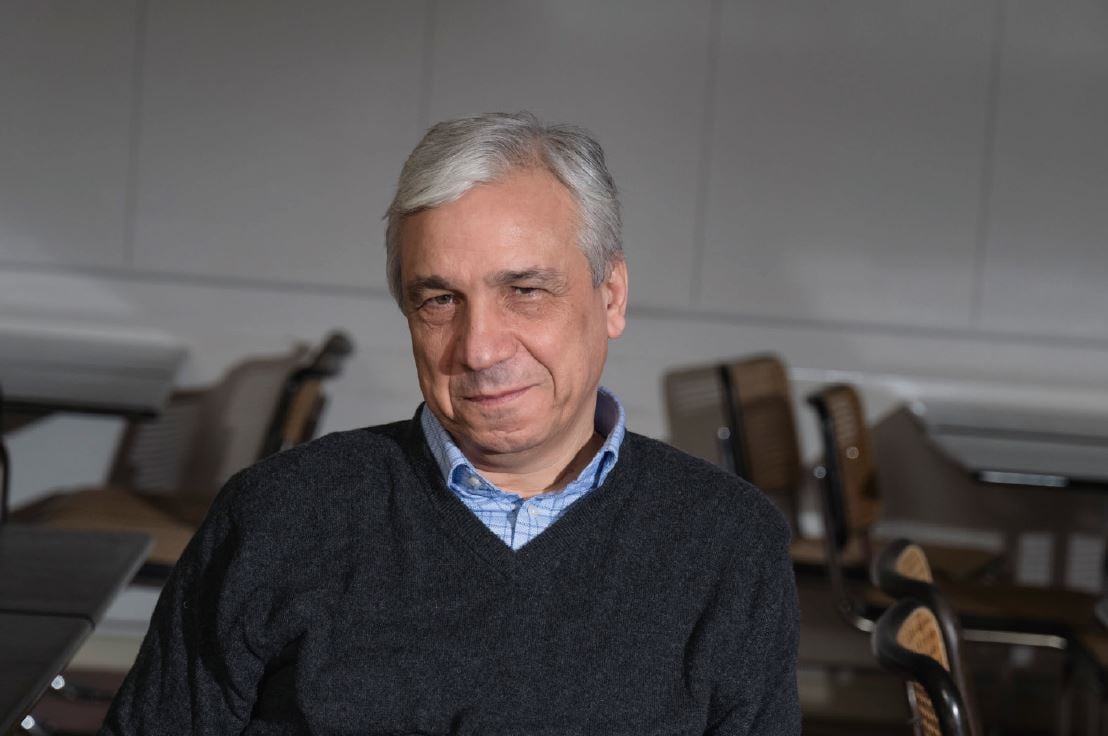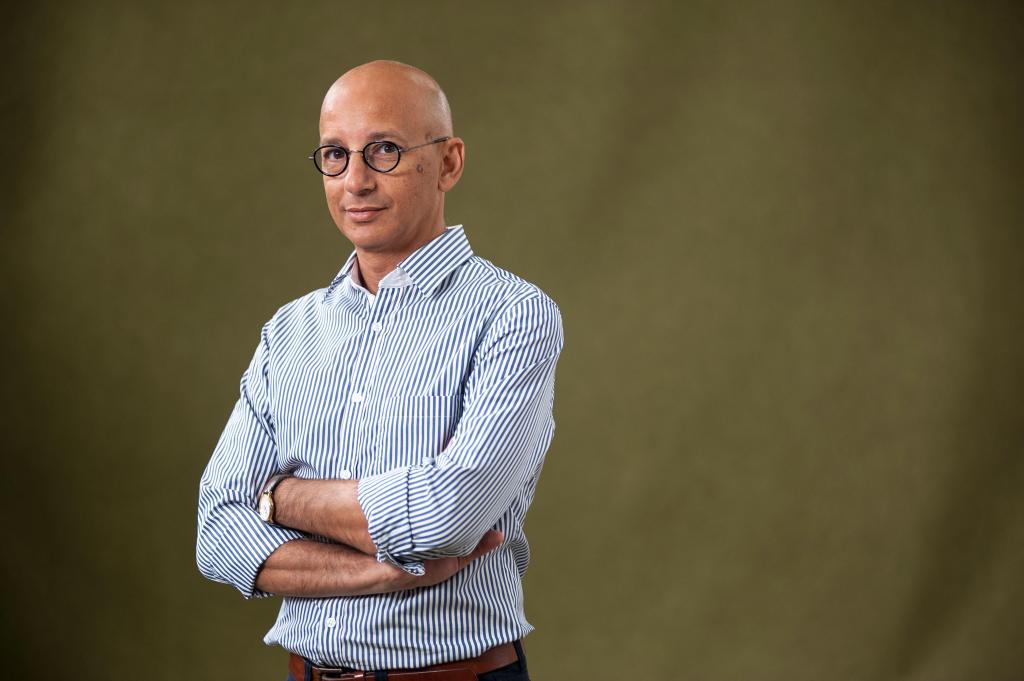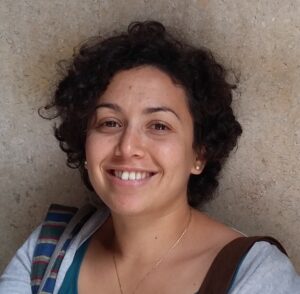Al Salon
10 Years of Movements
Al-Salon is a practice that has developed over the years in which scholars, public intellectuals, artists and activists set up regular meetings to discuss pressing current issues. On the occasion of the ten-year anniversary of the wave of revolutions that swept the North Africa West Asia (NAWA) region in 2010/11, we have revived this practice of creating and holding space for scholars, artists and activists to come together and reflect on the last ten years of movements both in and reverberating from the NAWA region.
Organized from our base in Berlin, but held online due to the current pandemic conditions, “Al Salon – 10 Years of Movements” is a series of five discussion circles held between November 2020 and February 2021 that aims to create an interactive, participatory space for reflection and exchange.
الصالون
١٠ سنوات من الحراك
تطور الصالون عبر سنوات كممارسة ثقافية وفكرية حيث كان يلتقي المثقفون والمفكرون والناشطون لمناقشة الشؤون الإجتماعية والسياسية. بعد مرور عشر سنوات على الثورات في منطقة شمال افريقيا وغرب اسيا، أردنا اليوم إعادة إحياء هذه الممارسة لخلق مساحة للأكاديميين\ات والفنانين\ات والناشطين\ات للتفكير بشكل جماعي على آخر عشر سنوات من الحراك والحركات السياسية في المنطقة والمهجر.
الصالون – ١٠ سنوات من الحراك هو خمس حلقات نقاشية تم عقدها بين شهري نوفمبر | تشرين الثاني ٢٠٢٠ وفبراير | شباط ٢٠٢٠ هدف الصالون هو خلق مساحة تفاعلية وتشاركية للتفكير وتبادل الآراء. تم تنظيمه من برلين لكن تم عقد جلساته بشكل افتراضي نظرا للظروف الحالية الخاصة بوباء كورونا.
More information and documentation of the sessions:
للمزيد من المعلومات عن الجلسات:
The Question of Defeat
19 November 2020
On the anniversary of the events of Mohamed Mahmoud, a November 2011 street battle and major milestone of the continuing Egyptian revolution after Mubarak’s ouster, the first session of Al Salon welcomed Syrian writer Yassin al-Haj Saleh and Egyptian historian Khaled Fahmy to reflect on the concept of defeat, both historically and in relation to the current situations in Syria and Egypt. Yassin differentiated between the concept of loss and defeat and discussed the need to engage with history differently from the position of the defeated. Khaled, meanwhile, reflected on the need to write our own histories and stories, to critically engage with available historical sources in order to understand our stories differently than how they have been narrated by political regimes.
سؤال الهزيمة
١٩ نوفمبر | تشرين الثاني ٢٠٢٠
في ذكرى أحداث محمد محمود، استضافت الحلقة الاولى من الصالون كل من الكاتب السوري ياسين الحاج صالح والمؤرخ المصري خالد فهمي للتفكير والنقاش حول مفهوم الهزيمة من منظور تاريخي وعلاقته بالوضع الحالي في كل من سوريا ومصر. قام ياسين بالتفريق بين مفهوم الخسارة والهزيمة وناقش الحاجة إلى الاشتباك مع التاريخ بشكل مختلف من موقع المهزومين. في حين أن اكد خالد علي ضرورة كتابة تاريخنا وقصصنا نحن وإن اشتبكنا بشكل نقدي مع المصادر المتاحة لفهم تاريخنا بشكل مختلف عما تم روايته.

Yassin Al Haj Saleh is a Syrian writer, critic, and activist based in Berlin. His work revolves around cultural and political issues — ranging from secularism and democracy and Islamic affairs to the Syrian Revolution, among many others. For more information about his writings, press here.
ياسين حاج صالح هو كاتب وناقد وناشط سوري مقيم في برلين. تدور كتاباته حول قضايا ثقافية وسياسية تتأرجح بين موضوعات مثل العلمانية والديمقراطية وقضايا الإسلام السياسي والثورة السورية. للمزيد عنه وعن كتاباته، اضغط هنا.
عن الخسارة والهزيمة
تعدد وتشابك الهزائم
نقد ل-حتمية الهزيمة

Khaled Fahmy is the His Majesty Sultan Qaboos bin Said Professor of Modern Arabic Studies at the University of Cambridge. His research interests include the social and cultural history of the modern Middle East, with an emphasis on the history of law, medicine, the army and the police in nineteenth-century Egypt. For more information about his writings, press here.
خالد فهمي أستاذ كرسي جلالة السلطان قابوس بن سعيد للدراسات العربية الحديثة بجامعة كامبريدج. تشمل اهتماماته التاريخ الاجتماعي والثقافي للشرق الأوسط الحديث، مركزا على تاريخ القانون والطب والجيش والشرطة في مصر طوال القرن التاسع عشر. للمزيد عن كتاباته، اضغط هنا.
عن هزيمة يونيو | حزيران ١٩٦٧
عن كتابة التاريخ
مدخل لكتابة تاريخ الهزيمة
Suggested Readings and Other Media
- Article: Defeat and the state: June 1967 and Hafez al-Assad’s Syria
- Podcast: Fatal Friends, National Trauma, Accountability
- Article: الهزيمة والدولة، حزيران 67 ودولة حافظ الأسد
- Article: في الهزيمة والخسارة، بين الأمس واليوم
- Article: الانقلاب المديد: تحولات سورية طويلة الأمد
- Article: سورية والعالمية الحربية الأولى
- Book Chapter: “الفصل السادس: هزيمة 67 الهيكلية والمستمرة” في كتاب “في تشريح الهزيمة
Political Mobilization between the First and Second Waves of Revolution
3 December 2020
In the second session of Al Salon, scholar-activists Naouel Belakhder from Algeria and Sara Abbas from Sudan reflected on political mobilization and organization in the recent “second wave” of NAWA revolutions since 2018 in comparison to the “first wave” in 2010/11. They contextualized their perspectives within the previous session’s theme of “defeat” and asked critical questions about the lessons learned and patterns that have been repeated between the NAWA revolutions’ first and second waves.
الحراك السياسي بين الموجة الأولى
والثانية من الثورات
٣ ديسمبر | كانون الأول ٢٠٢٠
انضمت كل من الباحثتين-الناشطتين نوال بالأخضر من الجزائر وسارة عباس من السودان إلى الجلسة الثانية من الصالون لمناقشة التنظيم والحراك السياسية في الموجة الثانية من الثورات في منطقة شمال افريقيا وغرب اسيا منذ ٢٠١٨ ومقارنتها بالموجة الاول في عامي ٢٠١٠-٢٠١١. تضمن النقاش مفهوم الهزيمة الذي كان موضوع الجلسة الأولى من وجهة نظرهن ومن خلال الواقع السياسي في البلدين. كما طرحت ونوقشت أسئلة نقدية حول الدروس المستفادة و الأنماط المتكررة بين موجتي الثورات في المنطقة.
Naoual Belakhdar is a political scientist affiliated to the Center for Middle Eastern and North African Politics (Freie Universität Berlin). Her research and teaching interests focus on social movements and statehood in the post-colonial Maghreb and Mashreq, with a particular focus on political participation, protest and resistance movements as well as on collective memory, film and politics. In her dissertation, she works on the transformation of state-society relations in post-civil-war Algeria in light of social protests.
نوال بالخضر هي محللة سياسية منتسبة إلى مركز سياسات الشرق الأوسط وشمال أفريقيا بجامعة برلين الحرة. يدور أبحاث وتدريس نوال حول الحركات الاجتماعية والدولة في حقبة ما بعد الاستعمار في بلدان المغرب والمشرق. تركز نوال على المشاركة السياسية والتظاهر وحركات المقاومة بالإضافة إلى الذاكرة الجماعية والسينما. تكتب نوال في رسالة الدكتوراه عن تحوّل العلاقات بين الدولة والمجتمع في الجزائر بحقبة ما بعد الحرب الأهلية في صدد موجة المظاهرات الحديثة التي اندلعت هناك.
Sara Abbas is a PhD Candidate in Political Science at Freie Universität Berlin. She is a member of the Berlin activist platform SudanUprising Germany. Her writing most recently appeared in the edited volume “A region in revolt: Mapping the recent uprisings in North Africa and West Asia” (2020- Daraja Press and Transnational Institute).
سارة عباس هي طالبة دكتوراه في جامعة برلين الحرة. سارة ايضًا عضو في مساندة الثورة السودانية-ألمانيا التي هي منصة أنشطة سياسية في برلين. بالإضافة إلى نشاطها، نشرت سارة حديثا نص في مجلة محررة بعنوان “المنطقة تتمرد: خرائطية الانتفاضات الحديثة في شمال أفريقيا وغرب آسيا” (2020 دراجة للنشر والمعهد عبر الأوطان)
Suggested Readings and Other Media
- Article: Algeria in revolt: “We woke up and you will pay!”
- Book Chapter: We Are Not Swallows (Algeria)
- Article: Beyond failure and success Revolutions and the politics of endurance
- Article: Direct democracy and the passion for political participation
- Article (Spanish): Fernandez Siles: It Was Not Depression, It was Capitalism!
- Article: Lessons from Sudan’s December revolution
- Video: Hossam el-Hamalawy: Lessons from the Arab Spring
- Article: Revolution is a process, and it’s far from over
- Video (Arabic): Socialist Interviews: Muzan Alneel | لقاءات الاشتراكي: مُزن النيل
- Video: Bella Ciao à la sauce «hirak» par Raja & Said Kateb
- Video:TiMoh – Echa3b Yourid – الشعب يريد
- Video: La casa del mouradia LIVE
- Article (French): Appel de Djamila Bouhired à la jeunesse algérienne en lutte : Ne les laissez pas voler votre victoire !
- Article (French): « L’Indépendance, c’est maintenant ! » Réflexion sur le soulèvement populaire en Algérie
Commemorating Bouazizi: Urban Poor Politics and Masculinities
17 December 2020
Tarek el-Tayeb Mohamed Bouazizi was a Tunisian street vendor who set himself on fire on 17 December 2010, sparking the Tunisian revolution. The third session of Al Salon commemorated his memory and posed questions about the struggles of urban poor youth ten years after the wave of 2010/11 NAWA revolts. Leyla Dakhli and Omnia Khalil delved into the intersections of urban poor politics and political movements in Egypt and Tunisia , respectively. Omnia, an architect-turned-social-scientist, and Leyla, a historian, shared their thoughts on the “affect” of the political climate during and in the wake of both countries’ revolutions and their influence on “the city” and urban living conditions, particularly for the urban poor. Some of the questions raised were: How has the situation changed for the urban poor in the past ten years? What kind of political avenues and opportunities, if any, have arisen as a result of the revolutions? How does gender and class intersect to produce subjectivities of the urban poor?
إحياء ذكرى بوعزيزي:
سياسات فقراء الحضر
١٧ ديسمبر | كانون الأول ٢٠٢٠
قام البائع المتجول التونسي محمد البوعزيزي بإحراق نفسه في ١٧ ديسمبر/كانون الأول ٢٠١٠ احتجاجا على الظروف الاقتصادية والاجتماعية وكان ذلك بداية شعلة الثورة التونسية. تحيي الجلسة الثالثة للصالون ذكراه من خلال طرح اسئلة عن تحديات فقراء الحضر بعد عشر سنوات من الموجة الأولى من الثورات. ناقشت كل من ليلى دخلي وامنية خليل تقاطعات قضايا فقراء المدن مع الحركات السياسية في تونس ومصر. تركزت أفكار المتحدثتين المهندسة معمارية وعالمة اجتماع أمنية خليل والمؤرخة ليلى دخلي حول الانعكاسات العاطفية للمناخ السياسي ضمن ثورات البلدين وفي أعقابها على المدينة وخصائص المعيشة الحضرية، خاصة بالنسبة للفقراء من سكان المدن.
Leyla Dakhli is a full-time historian in the French Center for National Research (CNRS) and currently at the Marc Bloch Center in Berlin. Dakhli studies Arab intellectuals and social history of the South Mediterranean region, with a particular focus on the history of women and the question of exiled intellectuals and activists. She is the principal investigator of the ERC-founded program DREAM (Drafting and Enacting the Revolution in the Arab Mediterranean). She is a member of the editorial committee of the International Review of Social History (Amsterdam) and Le Mouvement social (Paris), both prominent journals of social history. She is a member of the Scientific Committee of the MuCem (Musée des Civilisations de l’Europe et de la Méditerranée, Marseilles). Her last publications include “Histoire du Proche-Orient contemporain,” Paris, La Découverte, 2015, and “Le Moyen-Orient (fin XIXe-XXe siècle),” Éditions du Seuil “Points Histoire,” November 2016.
ليلى دخلي هي مؤرخة بالمركز الوطني الفرنسي للبحوث (CNRS) ومركز مارك بلوخ في برلين. تدور كتابات ليلى حول دراسة المفكرين العرب والتاريخ الاجتماعي في منطقة جنوب البحر المتوسط وتهتم بشكل خاص بتاريخ النساء وقضايا المفكرين والنشطاء في المنفى. ليلى دخلى هي كذلك باحثة رئيسية بمشروع “حلم” المموّل بواسطة ERC وهي عضوة في المجلس التحريري لدورية “المرجع الدولي للتاريخ الاجتماعي” التي تصدر في أمستردام ودورية “الحركة الاجتماعية” الصادرة في باريس. إضافة إلى ذلك، اختيرت ليلى دخلي لتكون عضوة في اللجنة العلمية لمتحف حضارات أوروبا والبحر المتوسط في مدينة مرسيليا. من بين منشوراتها الحديثة “تاريخ الشرق الأوسط الحديث” (2015) والشرق الأوسط – نهاية القرن التاسع عشر والقرن العشرين” (2016)
Omnia Khalil, is a PhD candidate in cultural anthropology at The Graduate Center, City University of New York (CUNY), and a Teaching Assistant at Hunter College in New York City. She is an urban researcher and co-founder of 10 Tooba, an interdisciplinary group of built environment professionals with developed expertise in participatory planning and policy analysis, working closely with communities in Egypt. Given her extensive experience in participatory urban action in Cairo, she sees the debates, promises and expectations concerning social injustice and inequality that accompanied the 2011 Egyptian revolution as demanding direct engagement with and defense of participatory community and urban planning against a history of forced evictions and resettlement as official government policy in Egypt.
أمنية خليل مرشحة لنيل درجة الدكتوراه في برنامج الانثربولوجيا في Graduate Center, City University of New York (CUNY). تختص أبحاثها حول المدينة، العنف، الاقتصاد السياسي، والاحلال الطبقي العمراني مع تقاطعات حول انثروبولوجيا الثورة. منذ ٢٠٠٨، تركز أمنية خليل عملها كباحثة عمرانية في المخططات التشاركية لتطوير المناطق المتدهورة العمرانية في القاهرة بالتعاون مع سكانها المحليين.
Suggested Readings and Other Media
- Book Chapter: Eric Dennis, “Cairo as Neoliberal Capital? From Walled City to Gated Communities” in “Cairo Cosmopolitan” Edited by Diane Singerman and Paul Amar
- Article: The State as an Urban Broker: Subjectivity Formation, Securitization, and Place-Making in Post-Revolutionary Cairo
- Article (Arabic): الدولة كسمسار عمراني: 1 -العمران ما بين خطابات التنمية والأمن والاقتصاد
- Article (Arabic): الدولة كسمسار عمراني: 2- العاصمة القديمة والتطوير بالإخلاء
- Article (Arabic): الدولة كسمسار عمراني: 3- تشكيل الفهلوة والبلطجة والسمسرة داخل المدينة
Healing and Restoration in Times of Revolution
28 January 2021
Inspired by feminist movements, this session raises the question of how healing and restoration are essential aspects of any revolutionary struggle. Alongside Egyptian feminist Yara Sallam and Berlin-based activist Ahmad Awadalla, this session of Al Salon shines a light on the question of sustainability in activism and different approaches to self and community-based care. Participants reflect on what healing and restoration might look like for them and discuss the potential as well as limitations of such practices. The session will be anchored in important works of several women human rights defenders such as the book What’s the Point of Revolution If We Can’t Dance? by Jane Barry and Jelena Djordjevic, and Even the Finest of Warriors written by Yara Sallam herself.
التعافي في
زمن الثورات
٢٨ يناير | كانون الثاني ٢٠٢١
تستمد الجلسة الرابعة إلهامها من الحركة النسوية وتطرح اسئلة حول التعافي كجزء أساسي من تجربة النضال الثوري. سيلقي كل من ضيفي الجلسة النسوية المصرية يارا سلام والناشط المصري المقيم في برلين أحمد عوض الله الضوء على سؤال الاستدامة في النشاط السياسي والجوانب المختلفة من الاعتناء بالمجتمع والذات. تطرح الجلسة أسئلة مثل ما هي أشكال الشفاء والتعافي في الأساس؟ وتستند الجلسة على كتابات مهمة من قبل نسويات مدافعات عن حقوق الإنسان مثل كتاب “ما هي مكاسب الثورة إذا مُنع الرقص؟” لـ لجين باري وجلينا جوردوفيتش و”حتى أقوى المقاتلات” ليارا سلام.
Ahmed Awadalla is a writer, activist, sex educator, psychosocial worker, and retired pharmacist based in Berlin. For the last decade, Awadalla’s work has focused on the intersections between health, gender, sexuality, and (forced) migration across Egypt and Germany.
أحمد عوض الله هو كاتب وناشط وصيدلي متقاعد يعمل كمستشار نفسي اجتماعي ومدرب في شؤون الجنسانية. على مدار العقد الماضي تركز شغل احمد على التقاطعية بين الصحة والجندر (أو النوع الاجتماعي) والجنسانية والهجرة الإضطرارية من مصر إلى ألمانيا.
Yara Sallam is an Egyptian feminist and a legal researcher based in Cairo. Yara has worked at various organizations, including the Egyptian Initiative for Personal Rights (EIPR), Nazra for Feminist Studies, and the African Commission on Human and Peoples’ Rights (ACHPR). She has worked on diverse issues, including criminal justice, regional and international human rights mechanisms, transitional justice, freedom of religion and belief, and women human rights defenders. Yara holds a law degree (LLB) from Cairo University in Egypt and Maîtrise of Commercial Law from Paris I University Pantheon Sorbonne in France, as well as a Master’s degree (LLM) in International Human Rights Law from the Law School of Notre Dame University in the United States.
يارا سلام هي نسوية مصرية وباحثة قانونية تعيش في القاهرة. عملت يارا في العديد من المنظمات، بما في ذلك “المبادرة المصرية للحقوق الشخصية”، و”نظرة” للدراسات النسوية، و”اللجنة الأفريقية لحقوق الإنسان والشعوب”. ومن ضمن الملفات التي قامت بالعمل عليها: العدالة الجنائية، والآليات الإقليمية والدولية لحقوق الإنسان، والعدالة الجنائية، وحرية الدين والمعتقد، والمدافعات عن حقوق الإنسان. حصلت يارا على درجتين جامعيتين في القانون؛ عام ٢٠٠٧: ليسانس حقوق من جامعة القاهرة في مصر وليسانس حقوق بتخصص في القانون التجاري من جامعة باريس ١ بانتيون سوربون في فرنسا. وقد حصلت أيضاً على درجة الماجستير في القانون الدولي لحقوق الإنسان من كلية الحقوق بجامعة نوتردام، بالولايات المتحدة الأمريكية في عام ٢٠١٠.

Readings and Other Materials
Role of Diaspora After 10 Years of Revolutions
11 February 2021
In the aftermath of the 2010/11 NAWA revolutions, many people who took part in them fled to other countries because they were either personally in danger and/or life had become impossible to live as it was. Today, we are witnessing growing NAWA diasporas in many European countries, made up particularly of activists, artists and academics who were involved in the region’s 2010/11 revolts. The last session of Al Salon will tackle the question of the role of different NAWA diasporas in supporting ongoing struggles in the region. This also entails critically reflecting on our capacities to act from abroad and questions of security. The session addresses these topics with the input of two Berlin-based activists, Wafa Mustafa and Ahmed Isam Aldin.
دور الجاليات بعد عشر
سنوات من الثورات
١١ فبراير | شباط ٢٠٢١
في أعقاب الموجة الأولى من الثورات في المنطقة بين عامي ٢٠١٠-٢٠١١، اضطر الكثير ممن شاركوا فيها مغادرة بلدانهم نتيجة لخطر يهدد حياتهم الشخصية او بسبب تزايد صعوبات المعيشة والاوضاع السياسية في البلاد. نشهد الآن تزايد ملحوظ لجاليات المنطقة في بلاد أوروبية خاصة من الناشطات\ين، الفنانات\ين والأكاديميات\ين. تطرح الجلسة الاخيرة من الصالون اسئلة حول دور جاليات المنطقة لمساندة النضالات داخل المنطقة مع تفكير نقدي حول قدرات الحركة من الخارج والاعتبارات الأمنية.حيث سيتحدث كل من الناشطين المقيمين في برلين، وفا مصطفي واحمد عصام الدين.
Ahmed Isamaldin is a visual artist-designer, a blogger from Khartoum, studied physics at the University of Khartoum, graphic design and photography in Cairo, participated in different exhibitions between Khartoum, Cairo, and Amsterdam, Brussels, Bologna and Berlin, his work published in Shwules museum in Berlin. He is dealing with the topic of immigration and psychology, and the process of the revolution, de-colonial design, and technology. Currently, he is studying Visual Communication at Weißensee Kunsthochschule Berlin.
أحمد عصام الدين هو فنان ومصمم بصري ومدوّن من الخرطوم. درس أحمد علم الفيزياء في جامعة الخرطوم والتصوير في القاهرة. شارك أحمد في عدة معارض بين الخرطوم، القاهرة وامستردام وبروكسل وبولونيا. اما في برلين فعرضت أعمال له في متحف Schwules. تهتم أعمال أحمد بموضوع الهجرة والسيكولوجية بالإضافة إلى عملية الثورة والتصميم ال”لا-استعماري” والتكنولوجيا. حاليًا يدرس أحمد التواصل البصري في Weißensee Kunsthochschule في برلين.
Wafa Mustafa is a Syrian journalist and activist based in Berlin Germany. After fleeing Syria due to her activism and due to her father’s detention by the Assad regime, Mustafa began working and reporting on Syria’s political and field situation for various media outlets. In her advocacy, Mustafa covers the impact of detention on young girls and women and families. She has worked as a research assistant with the Global Public Policy Institute, in Berlin, conducting and analyzing witness testimonies on the usage of chemical weapons in Syria. In addition, Mustafa is a BA graduate in Humanities, Arts, and Social Thought at Bard College Berlin.
وفا مصطفى هي صحفية وناشطة سورية مقيمة في برلين. اُجبرت وفا على الهروب من داخل سوريا نتيجة لنشاطها السياسي وخطف واعتقال والدها من قِبل نظام بشار الأسد. بدأت وفا العمل كصحفية تكتب عن الوضع السياسي في سوريا لعدة وكالات أنباء إخبارية. عملت وفا كمساعدة باحث في المعهد العلمي للسياسة العامة (Global Public Policy Institute) في برلين في مشروع يجمع ويحلل شهادات استخدام الأسلحة الكيماوية في سوريا. حصلت وفا على شهادة بكالوريوس في علوم الإنسان و والفن والفكر الاجتماعي من كلية بارد برلين (Bard College Berlin).
Al Salon Illustrated
Al Salon Illustrated is a documentation of the five sessions of Al Salon held online between November 2020 and February 2021 to reflect on the ten years of uprisings in the NAWA region. It is divided into five sections, each focusing on one of the sessions of Al Salon portraying the main ideas discussed and reflecting the questions raised. The text is authored collectively by Al Salon organizers, and is accompanied by the illustrations of visual artist Lara Ziyad and is designed by graphic designer Vivaldi.
الصالون، تقرير مصوَّر
الصالون، تقرير مصوَّر هو توثيق لجلسات الصالون الخمسة التي انعقدت ما بين نوفمبر\تشرين الثاني 2020 وفبراير\شباط 2021 للمناقشة والتأمل في ذكرى مرور عشر سنوات على الثورات في منطقة شمال أفريقيا وغرب آسيا. ينقسم الكتيّب إلى خمسة أجزاء يلخص كل منها أفكار الجلسة ويعكس الأسئلة والتأملات التي طرحناها. تمت كتابة النص جماعيًا من قبل منظمي ومنظمات الصالون، ويرافق النص رسومات الفنانة البصرية لارا زياد، بتصميم من مصمم الجرافيك فيفالدي.
